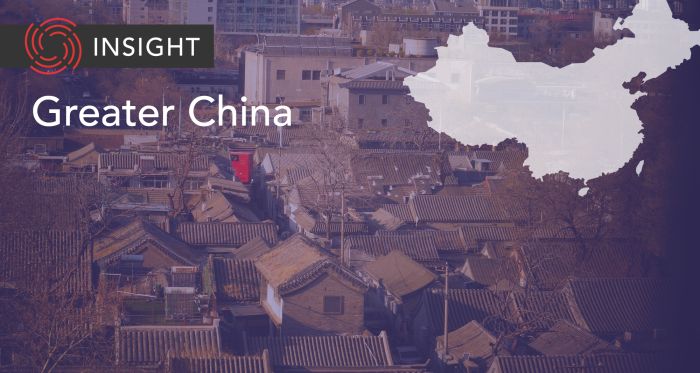The Takeaway
After years of keeping China’s property sector on a tight leash, Beijing seems to have finally let the country’s real estate sector loose with its latest stimulus package aimed at spurring housing demand. While experts and consumers alike welcome the change, some remain skeptical about whether these policies will be enough to finally bring an end to the country’s real estate woes.
In Brief
Chinese authorities recently introduced new lending policies to make purchasing a property easier for first- and second-time homebuyers. On August 25, the Ministry of Housing and Urban-Rural Development, the People's Bank of China, and the National Administration of Financial Supervision issued a joint notice that redefined the relation between a mortgage and the number of homes owned.
Mortgage applicants and their dependents will now be considered “first-time homebuyers” regardless of whether they have previously had a mortgage elsewhere, so long as they are purchasing their first property within a given city. And by making more families eligible for smaller down payment requirements and preferential mortgage rates, the measures aim to stimulate demand, particularly among families considering replacing or upsizing their current property. The government also introduced two other stimulus measures: a reduction in the minimum down payment required for both first- and second-time homebuyers, and increased flexibility for banks to reduce their mortgage rate markups.
Following the central government’s announcements, more than 20 cities introduced the new lending policies, including the megacities of Beijing, Shanghai, Guangzhou, and Shenzhen. With some prospective homebuyers seeing their required down payment drop by half — from 60 to 80 per cent for second homes and around 30 per cent for first homes — the initial response seems promising. On the first weekend after the policy’s implementation, some real estate offices in Shanghai and Beijing operated all evening, making one month’s worth of sales in a single day. The sale of second-hand homes also increased, suggesting that homebuyers are purchasing from other homeowners more than before. Furthermore, most property developers’ stocks surged as more lower-tier cities joined in relaxing mortgage rules and dismantling curbs on the number of homes consumers could purchase.
Implications
China’s underperforming real estate sector — which, in its heyday, alongside related industries, accounted for a quarter of the country’s GDP — has been one of the key causes of the country’s post-pandemic economic slowdown. Since 2017, restrictions designed to curb speculative buying and deflate a nascent housing bubble have left the property market in a deep freeze.
Many of China’s property giants, debt-ridden due to their risky ‘borrow-to-build’ model, have seen their revenues diminish. In 2020, regulations that limited developers’ risky borrowing habits further impacted companies’ cashflows, causing more than 30 of the country’s biggest developers to default or miss loan payments over the past three years. Several real estate giants are currently teetering on the edge of insolvency — Evergrande Group filed for bankruptcy protection in the U.S. in August, while Country Garden narrowly avoided default in early September.
As the crisis worsened, many expected the government to introduce a major rescue package. However, until the latest policy announcements, authorities have refrained from big-ticket bailouts, instead choosing to rely on more modest measures such as interest cuts. As such, the recent liberalization of the real estate sector indicates that Beijing has largely abandoned its “houses are for living, not for speculation” principle and has begun adding more untraditional measures to its stimulus toolbox. For instance, major efforts have been made to relax China’s foundational household registration system, the hukou, to boost rural migration and spur housing demand in urban areas. At the same time, financial policies like the stamp duty reduction, which had not been cut since the 2008 global financial crisis, have aimed to invigorate demand in an otherwise risk-averse business environment. Together, these initiatives suggest that authorities are realizing the urgency of bolstering investor and consumer confidence.
However, despite recent policy efforts, experts warn that it remains to be seen whether the ‘opening up’ of the real estate sector will have long-lasting, positive effects, particularly as other aspects of China’s economy, such as the job market, continue to underperform. Observers also worry that liberalized lending and greater private debt may disrupt the country’s economy. In addition, so long as housing affordability problems persist, consumers and investors will likely choose to wait for more tangible results from these new housing policies before making any major financial decisions.
What's Next
- Continued policy momentum needed to reap benefits
While Beijing’s latest ‘opening up' of the property sector marks a major shift, more progressive policies will be needed to truly revitalize the industry. Industry watchers expect follow-up policies to further lower payment requirements and drop property purchase limits to make the stimulus more sustainable. to make the stimulus more sustainable.
- Households need more pro-consumer policies
As liberalized lending encourages households to take out larger loans, future measures need to better support property buyers — who are feeling the effects of a weak labour market and squeezed disposable incomes — to prevent mass defaults and ensure that private debt remains sustainable.
• Produced by CAST's Greater China team: Maya Liu (Program Manager); Karen Hui (Analyst); and Chloe Yeung (Analyst).




